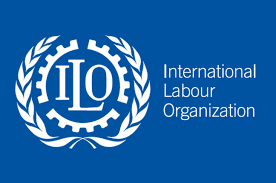By Eberechi Obinagwam
The International Labour Organisation, (ILO), has estimated 169 million increase in 2019 over 164 million in 2017, in the most recent global report on migrant workers, while the gender distribution additionally reveals that among all migrant workers globally as of 2017, 68.1 million or approximately 41.6 per cent were females.
Director, ILO Country Office for Nigeria, Ghana, Liberia, Sierra Leone, and Liaison Office for ECOWAS, Vanessa Phala, revealed this on Monday, at a training workshop organised within the framework of the FAIRWAY project in Nigeria, supported by the Swiss Development Cooperation, (SDC).
In a bid to curtail this figure, ILO within the framework of the FAIRWAY program in Nigeria, supported by the Swiss Development Cooperation, (SDC), held a two-day training workshop, an inter-regional
The initiative, aimed at enhancing the capacities of stakeholders to protect the rights of all migrant workers especially women and other vulnerable groups along the labour migration cycle with a specific focus on the Labour migration corridor between Africa and the Arab States.
Responding to a large number of migrant workers, ILO, director, Vanessa, said that labour migration for the receiving and resending countries contributes to economic development and therefore, a framework has existed that manages and guides the procedures that should be portfolio to facilitate an easy project, ”so, in ILO, we have a specific convention 1,2, 3 portfolio that speaks to Labour migration.
It is also the contention of this policy project to support the ratification of ILO conventional in Nigeria, including convention and domestic and private employment institution agencies.”
She stated that the workshop was specifically for capacity building to support some private organizations such as Nigeria Employers’ Consultative Association of Nigeria, NECA, and Human Capital Providers Association of Nigeria, ( HuCaPAN), in terms of dealing and raising issues of labour migration amid Covid 19, and to better understand the realities of labour migration on the ground, and know how to respond as a country.
“As a result of Covid 19, we have seen that a lot of businesses have been affected, therefore, some persons must have lost their income, they have lost their livelihood, and some persons would have come back home who have been working outside of the country and some persons that may want to explore outside, or want opportunities outside the original country.
“So this workshop is important so we can discuss and understand the legislative framework of labour migration of the policy sales in terms of Labor migration. Most importantly, all this enrolling of employment organizations as a kind of employment agencies and facilitating a conducive environment to promote and facilitate labour migration in the context of COVID-19.
“We hope that the workshop gives participants the opportunity and a platform to engage in one of the challenges that have been experienced as a result of labour migration and how best they can support labour migrations and know what kind of foreign equipment practices to make sure that they are implemented so that they can support the labour migration practices, and institutional arrangements and governance arrangements in Nigeria,” she said.
She employed NECA to create awareness for migrant workers that will make them understand related and policy requirements for persons who are migrating in and outside of their countries, ”what is it they need to understand that we can address the issues of illegal trafficking of persons,”
Adding, president, Human Capital Providers Association of Nigeria, (HuCaPAN), Remi Adegboyega, disclosed that the out break of Covid 19 has not only affected our businesses, but it has also changed our social and work environment culture including labour migration management.
He explained that it has also thrown up new challenges to both the employers and the workers. “It is in view of this that this intervention by the International Labour Organization, (ILO), is coming at a right time,” he said.
He added that the aim of the workshop aligns with HuCaPAN’s vision to always uphold relevant ILO conventions on fair and ethical recruitment as this program will create platform for employers to better understand ILO’s General Principles and Operational Guidelines for Fair Recruitment and Definition of Recruitment Fees and Related Costs.












